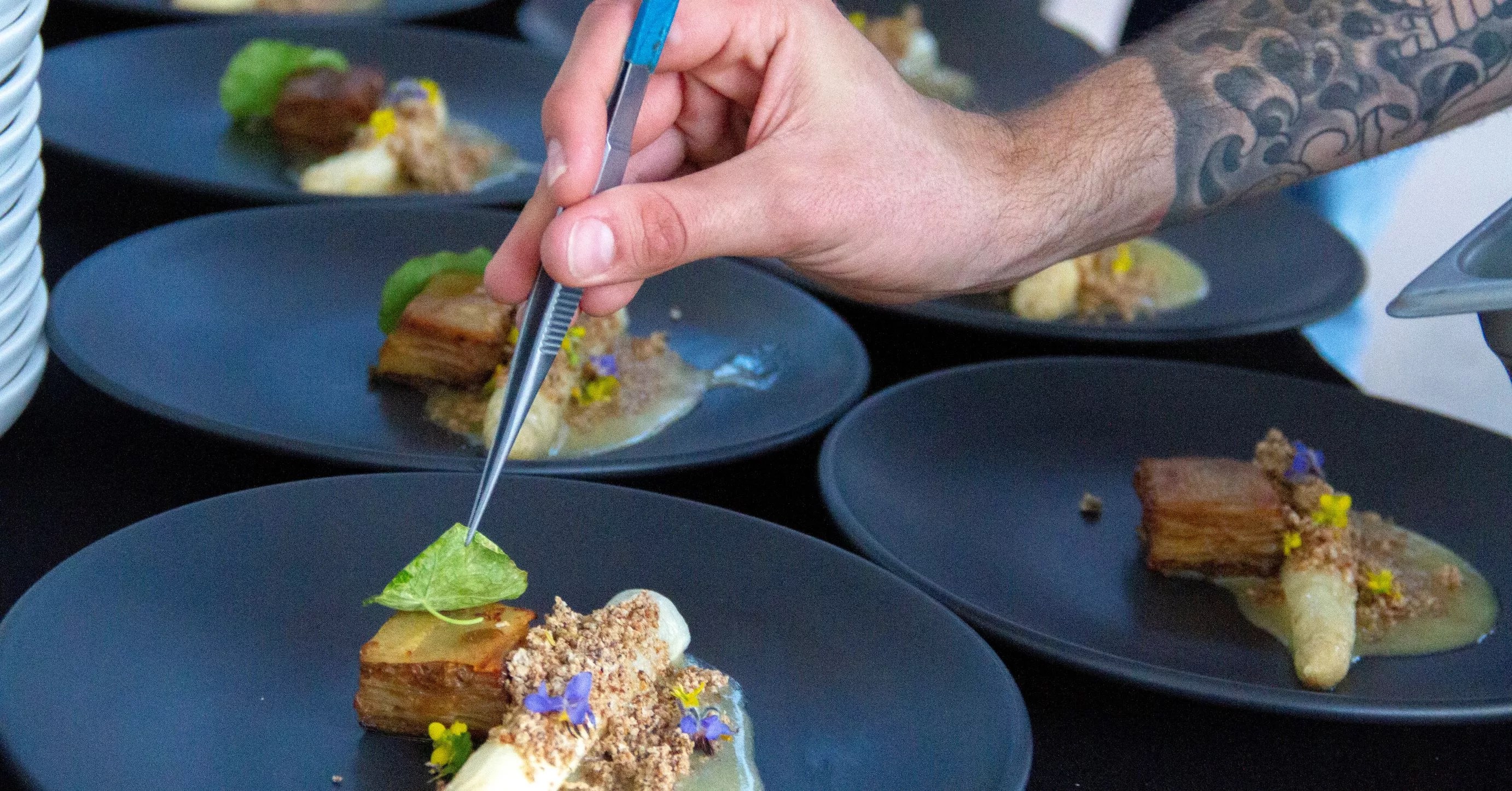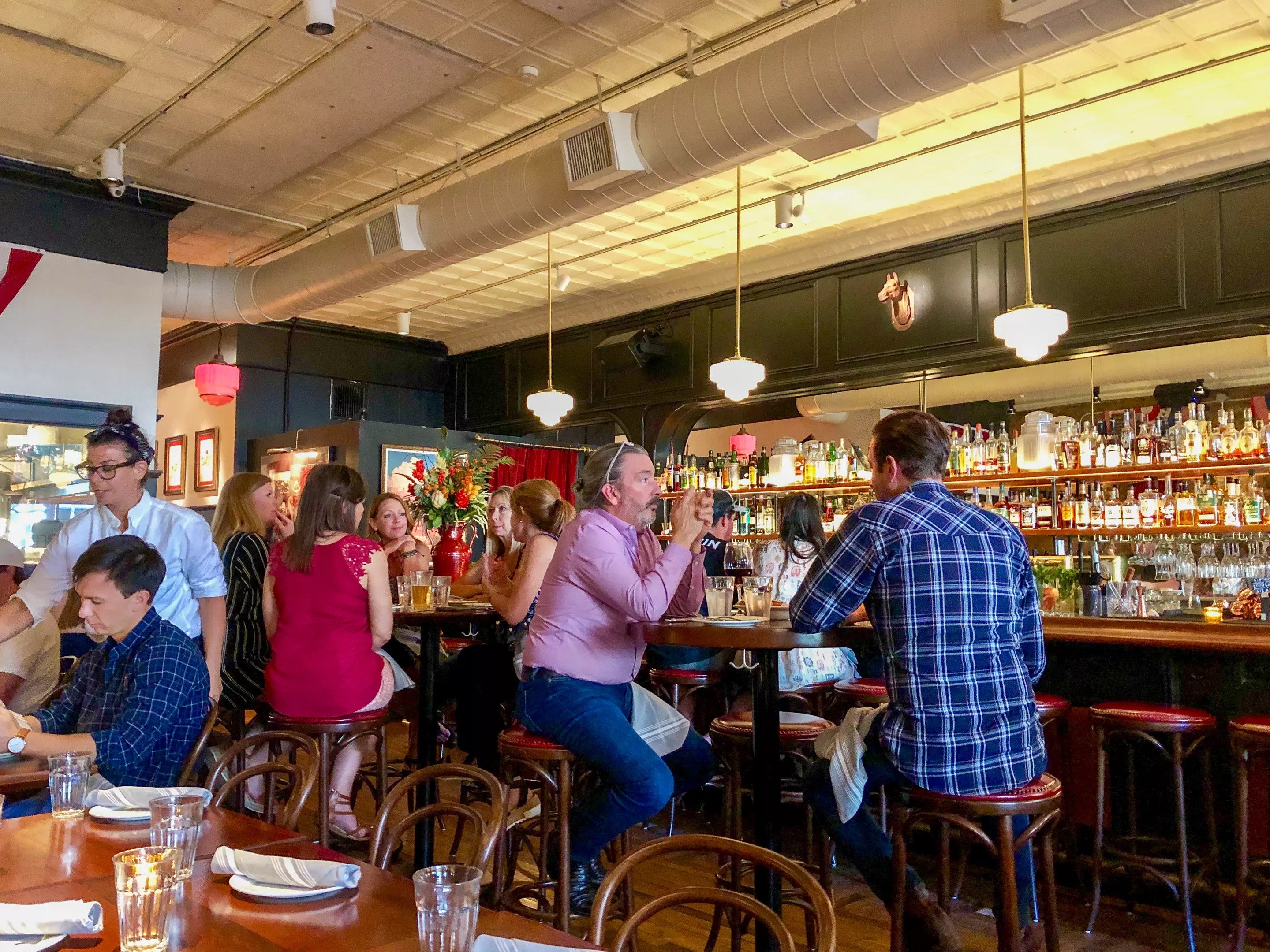
Taylor Adams

Audio By Carbonatix
March 16, many of Dallas’ hospitality and service industry workers were immediately affected by Dallas Mayor Eric Johnson’s mandate to close all bars, breweries, taverns and restaurants for in-house dining. The move to stop the spread of COVID-19 left many hospitality and service industry workers unsure of how they will make money.
According to a survey by Shift Dallas, an organization committed to helping provide resources for hospitality industry workers, 75% of people laid off or furloughed from their service industry jobs make a majority of their income from tips. Sixty percent have no form of health insurance, and only 46% believe they’ll have enough food to get through the time they’ll be away from work.
Shift is still in its infancy, as the organization was formed this week. However, Seth Brammer and other members of Shift want to rebuild the hospitality industry once the coronavirus closures are over.
“Our dining scene defines us culturally quite a bit. … I think it’s important for the public to understand that it’s going to be reinvented after we come out of this.” — Leslie Brenner
“[Brammer] and I, and a number of other people sort of regularly get together and talk about these things,” says Leslie Brenner, who’s assisting in organizing Shift Dallas. “How can we make things better going forward? And he and [chef] Josh [Sutcliff] have been very actively thinking about that over the last year, maybe longer.”
While Shift is only days old, they have recruited more than 50 task force members. At the moment, their mission is to identify service industry workers in Dallas who are in distress because of the necessary closures and provide them with the help they need.
Brenner believes if the hospitality industry is going to be reinvented, the general public needs to understand how important the industry’s workers are to Dallas’ culture.
“Restaurant culture is such a hugely important part of Dallas life. I think we saw that when Bon Appétit named Dallas the most interesting food city in the country,” the former restaurant critic says. “Our dining scene defines us culturally quite a bit. And I think it’s something that has been important to everybody, and I think it’s important for the public to understand that it’s going to be reinvented after we come out of this.”

Seth Brammer
courtesy Seth Brammer
As of now, Brammer, one of the key founders of Shift, is predicting they will be in the process of recovering the hospitality industry for the long haul. They’re currently working on accumulating donations and figuring out what the hospitality community needs at the moment.
Brammer says he has had Shift in the back of his mind for the last two years. Now with coronavirus closures, he believes people are finally realizing how vital service industry workers are to the community.
“In my view, the only way to move the hospitality business forward is for the folks within it to become professionals,” Brammer says. “And the only way for them to become professionals is if everybody in the business all considers their peers professionals, which means a line cook can look at another line cook and think of him as professional, and a bartender has to look at a barback and think of him as the future of the business, and not just somebody that’s helping them make a buck that night.”
Brammer, who works as a mixed beverage professor at El Centro College, has looked at other dining cultures and explored the possibilities of how the service industry can be rebuilt. He believes once the coronavirus closures are over, the industry cannot go back to the way it was before.

Restaurants could look different after coronavirus finally clears.
Taylor Adams
“What we’ve done is we’ve created a system where we have people that are willing to go and work their asses off because of their passion,” Brammer says. “We’ve still got people getting paid $2.13 an hour for a guaranteed baseline of $80 a week, and everything else they’re working for is tips.
“That means that businesses fundamentally cannot plan for disaster, or they fundamentally cannot do it given the mandatory way that businesses are run right now, because of the system that we set up for ourselves. This is just what it is. There’s no other way to be competitive in the market, other than to chronically underpay the shit out of everybody, and cut and run when the going gets tough.”
Brammer says he would be floored if 75% of the restaurants that were closed would reopen following the coronavirus closures, and he believes the pandemic has led to a turning point in America. The system, he feels, is broken, and he wants to make sure that in the future, the industry is prepared for events like pandemics.
While Brammer and Shift Dallas want to spearhead change in the hospitality industry, their main focus right now is providing service industry workers with the essentials.
“We’re 100% dedicated and committed to making sure that people have something to eat in this city,” Brammer says. “We have always been committed to that. And just because we might not have jobs anymore doesn’t mean that we stop.”